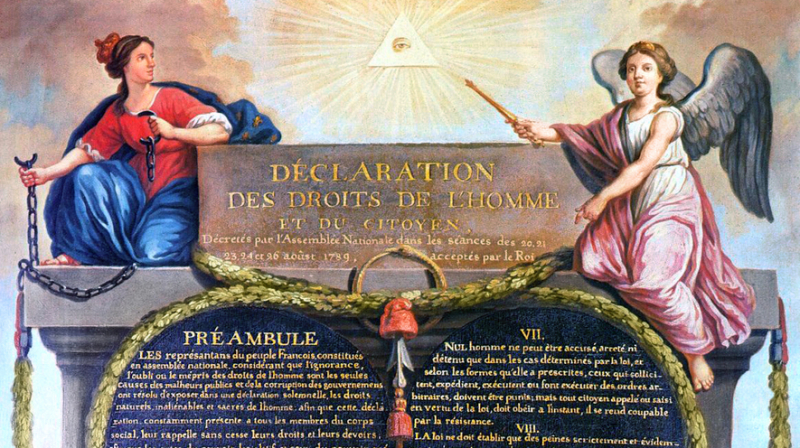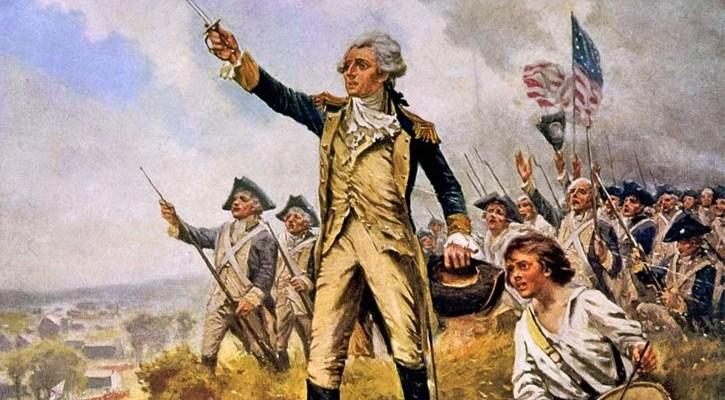Declaration of the Rights of Man, August 26, 1789
The Declaration of the Rights of Man and Citizen, proclaimed by the French National Constituent Assembly on August 26, 1789, articulated individual and community rights during the French Revolution. Although some delegates at the Assembly praised the Magna Carta and other constitutional documents like the United States Declaration of Independence, the Declaration ultimately rejected appeals to ancient charters of liberty, based on the principle that man's rights are natural, universal, and inalienable.
The Declaration did, however, echo Magna Carta in some key statements, such as subordinating the monarchy to the rule of law, ensuring that "no person shall be accused, arrested, or imprisoned except in those cases established by law", and ensuring that taxation could only be raised by common consent. The main author of the Declaration, Marquis de La Fayette (1757-1834), cooperated with Thomas Jefferson (1743-1826), who had been influenced by Magna Carta. In clause 1, which proclaims that "Men are born and remain free and equal in rights," Jefferson's influence is obvious. The birth of this manifesto played an important role in the revolution, so it can be said that it was one of the major events of the French Revolution.
Dates: August 26, 1789














